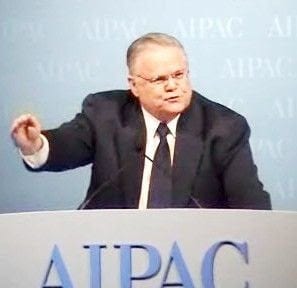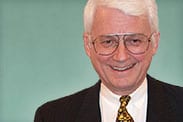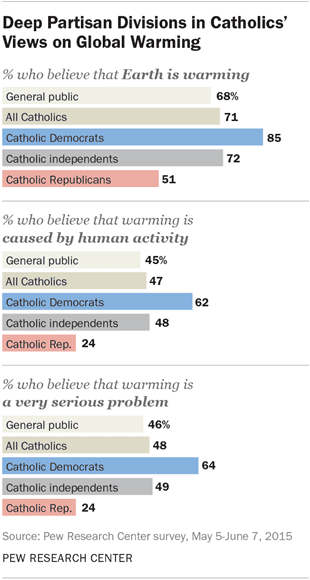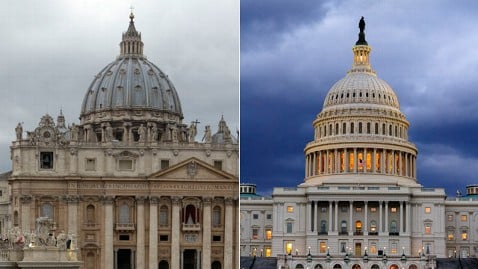Francis: A True Pope for all Seasons?
[dropcap]A[/dropcap]s I said in an earlier column (1):
“During his first year in office Pope Francis has been taking some pretty remarkable positions, for a Pope at any rate. Indeed, in the context of the Roman Catholic Church they could be considered radical. For example, he has opened the door to gay Catholics, he has acknowledged that there is a sort of ‘gay lobby’ within the Vatican itself, he has said that atheists might well be welcomed into heaven. He has also been engaging in some fairly substantive house-cleaning and reorganizing, like bouncing more than one reactionary Cardinal from places of influence on policy making and politics within the Church hierarchy. Finally, and most remarkably, he has ripped into contemporary capitalism, to the extent that Rush Limbaugh (not a Catholic) felt it necessary to engage him in an extensive bout of red-baiting. . . .”
He has continued that critique right down to the present day (2). Also, Pope Francis has declared that both the evolutionary and big bang theories are settled (3) science (and by so doing has reiterated past Popes’ recognitions of the correctness of both science and the scientific method), and the God isn’t a magician who waves magic wand, either frequently or infrequently. The latter puts him in direct conflict with Christian Fundamentalists (in the U.S. at the center of the Republican Party) who, along with several U.S. Supreme Court justices and Repub. Presidential candidates, do believe just that. Recently, he has come down very hard on Christian Fundamentalists (4).
He has also come down hard on the military-industrial complex (5), and has gone so far as to say that weapons manufacturers cannot call themselves Christians (6). Recently, in Bolivia, he directly apologized for the Church’s sins [sic] during the centuries-long Spanish occupation of Latin America (7). Finally, he is vitally concerned with the threat to human existence (and that of many other species) by the onrush of anthropogenic climate change, going so far as to issue an Encyclical on the subject (8). In addition, he has gone even further as to ally himself (and by implication, of course, the Church) with Naomi Klein (9), who, of course has written the very important book (10) linking climate change directly to capitalism (11). In fact, Pope Francis might be leading the Church in to a direct clash with capitalism (12).
[dropcap]S[/dropcap]o what is going on here? Well, I may be jumping the gun on this one, but I think that Pope Francis, and both the clerical and secular powers within the hierarchy of the Roman Catholic Church which put him into power, is preparing it for survival as an institution in a post-capitalist world. For he has made it clear that if the Earth and its human, other-animal, and plant species are to survive in any kind of state of health, capitalism will have to be replaced by some alternative form of economic and social organization, presumably some sort of socialism. He isn’t concerned, at least yet, or at least publicly, with just what form a future socialism would take. Nor is he concerned, at least yet, or at least publicly, with how we are to get there, given the overwhelming opposition to such a change that the global capitalist/imperialist system led by the United States, would mount. But he is concerned, as I said, with the proposition that if that happens, the Church will remain as a major institution.
Indeed, as I have also said previously (1), “in order to deal with changing realities over time, the Church has changed policies on numerous occasions over its long history. One can trace that time-line from the Council of Nicaea in 325, which following the conversion to Christianity of the Roman Emperor Constantine, a) brought the Church fully out into the open, beyond persecution, and b) made it a political partner with the Roman Empire. Over time came, for example: St. Augustine, who among other things codified the doctrine that the “Jews killed Christ,” so that anti-Semitism became a driving force for a church theoretically founded by a Jew (or at least in the name of a Jew) over so many centuries; St. Thomas Aquinas who, of course with colleagues, introduced an element of rationality into church doctrine; the Crusades, which made the Church into a major military power for a time; the focus on the use of torture on so-called heretics for centuries, starting well before the Reformation, which “anti-heretical” process then led to Church-sponsored massive civil wars in Europe for 150 years (fighting and actually killing each other over such matters as whether or not the wine and the wafer at communion were really the blood and body of Christ, or not [see England’s ‘Bloody Mary,’ the Queen, not the drink]).

Professional corporate and imperial apologist, the utterly vile Rush Limbaugh, is among the first to red-bait the Pope, but as time goes by, and if the Pope persists, there will be many more. The worst and most insidious assault will come from the elegant liberal punditocracy.
“Through the Holy Roman Empire, for many centuries the Church was a major geographic/political power in Europe. The HRE came to an end only in 1806, during the Napoleonic Wars. The Church continued to be a major political player in Italy, down to the time of Unification in 1860, which deprived it of virtually all of the Italian landscape that it had once controlled. In the 20th century, the Church openly sided with fascism, from Mussolini through Hitler and Franco to the Dirty War in Argentina (of which, unfortunately, this Pope knows much from the inside, some of it admirable, some of it not so — which experiences could, incidentally, have played a very important part in the development of his thinking).
“So indeed, the Church has played many political, military, and economic roles over time, to be sure almost invariably on the side of the varying ruling classes. But, capitalism is reeling towards its predicted self-destruction (13), possibly taking [as I have said on a number of occasions] our species and many others with it. At the same time an increasing number of people, including numbers of Catholics, have been seeing the Church, until the election of this Pope, as becoming increasingly irrelevant in terms of these challenges. Following, then, its two-millennium tradition of changing to both make and keep up with the times, could the Church make a turn to the Left?”
[dropcap]N[/dropcap]aomi Klein herself has speculated (14) on that possibility. Indeed, increasingly under this Pope, it seems to be doing that, very quickly and very openly. In my view, this Pope may well feel that the replacement of capitalism is indeed the only route to the survival of the Earth, in a form that is at least somewhat familiar to us. But I think that he certainly feels that if the Church is to remain as the major world institution it has been since the time of the Council of Nicea, major change is essential.
In 1959, one Walter Miller, Jr., published a book entitled A Canticle for Leibowitz (Lippincott, 1959, Bantam, 1961, Harper Collins/Perennial/Eos, 1986, 2006.) It was one of the first post-nuclear-war-apocalypse books. On the recommendation of my father, the historian Harold J. Jonas, I read it, probably back in the 1960s. In the context of what is going on now within the Roman Catholic Church, I am re-reading it. The story opens with a scene on a desert somewhere in the Southwest of what was once the United States of America, about 600 years after “The Deluge,” literally of fire and (radioactive) brimstone. There was apparently a massive thermonuclear exchange that destroyed much of life, property, written and other records of just about everything and anything, all industrial productive capacity, all educational and research and development resources, all means of transportation other than some horses and donkeys and one’s own two feet, and everything else in the nation.
Following it, there were mass riots on the part of certain survivors who sought to destroy what they had thought caused the war to begin with: science, knowledge, the scientists and other keepers of knowledge, and all books and similar sources of knowledge. After those riots were finished, all education disappeared, many of the sources of knowledge were destroyed, and on the desolate landscape devoid of any of the elements of what we call “civilization,” only various, isolated, small tribes of illiterate folk remained. There were no governments, laws, organized armed or police forces, or etc. Only one institution had survived from before “The Deluge.” You guessed it: the Roman Catholic Church.
With its headquarters in “New Rome,” somewhere in North America, there it was, not quite in all its glory, but there it was. Every other institution, of government, of education, of science, of politics, of culture, of non-science, and etc., was gone. But there stood the Church. It survived a nuclear holocaust that carried away every other organization known to man. And this Pope, with the obvious backing of very strong elements within the Church, is making every effort to ensure the Church’s survival as an institution in a post-capitalist world. And that is whether that world has moved on to some kind of socialism, or it has not. If it is the latter, then a real version of “The Deluge” will most likely occur, whether it results from the fire of global warming or the ice of thermonuclear war. But this Church leadership is determined that whatever happens, the Roman Catholic Church, as in A Canticle for Leibowitz will, in some form, remain.
References:
7. http://www.nytimes.com/2015/07/10/world/americas/pope-francis-bolivia-catholic-church-apology.html
8. http://w2.vatican.va/content/francesco/en/encyclicals/documents/papa-francesco_20150524_enciclica-laudato-si.html
10. https://www.greanvillepost.com/2014/11/22/naomi-klein-the-romantic-revolutionary/
13. https://www.greanvillepost.com/2015/01/18/the-suicide-of-capitalism/
14. http://readersupportednews.org/opinion2/277-75/31226-a-radical-vatican
ABOUT THE AUTHOR
http://www.puntopress.com/jonas-the-15-solution-hits-main-distribution/, and available on Amazon.























